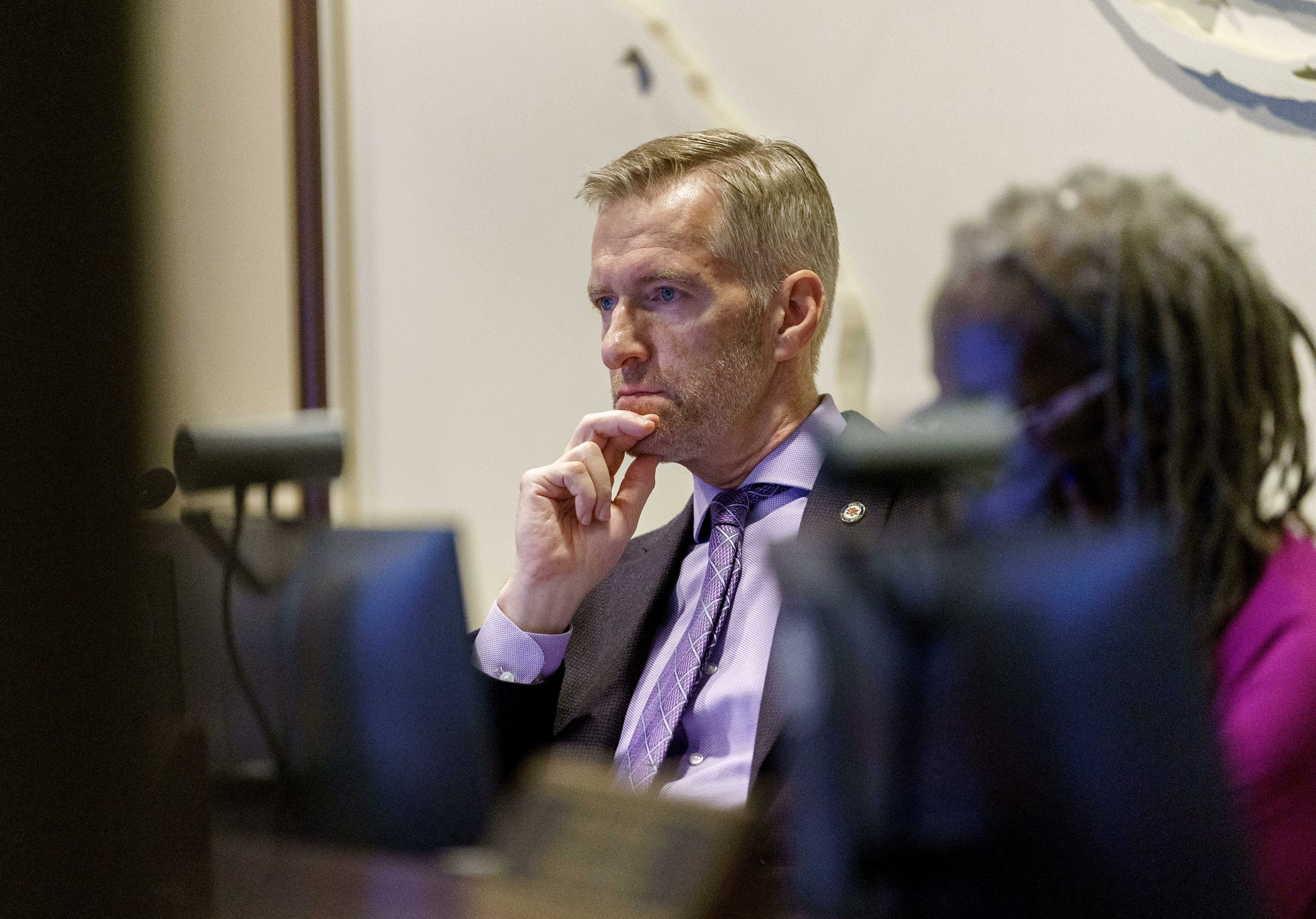
Mayor Ted Wheeler, during a Portland City Council meeting on Wednesday, Oct. 26, 2022.
Kristyna Wentz-Graff / OPB
Portland Mayor Ted Wheeler has proposed a $7.1 billion budget that attempts to maintain current services with limited new revenue while laying the groundwork for a coming overhaul of the city’s government structure.
The mayor’s budget proposal for the upcoming fiscal year, which spans from July 1 through the end of June 2024, reflects the city’s changing economic environment. In the past two budget cycles, Portland’s spending plan was bolstered with one-time funding from the federal American Rescue Plan Act and unexpectedly high tax revenue from businesses that thrived during the COVID-19 pandemic. Those funds helped expand public safety and trash clean-up programs. With those temporary revenue streams dried up, city commissioners were instructed to reshuffle resources to keep those programs running — and they weren’t allowed to request money for new projects.
Other revenue decreases, like a 5% drop in recreational cannabis tax dollars, also limited funding options. The mayor’s proposed budget is 1% smaller than last year’s figures.
Wheeler has previously called the coming fiscal year “challenging” and characterized it as a “pinch year” in terms of funding. He echoed that sentiment in a Thursday statement.
“Given general inflation to existing costs, the sunsetting of federal one-time resources to fund ongoing needs and the elevated level of deferred maintenance, the demand for resources continues to surpass availability within the city,” Wheeler said.
The city’s revenue largely falls into two categories: discretionary general funds and non-discretionary funds. Non-discretionary dollars come from grants, utility fees, contracts and other revenues that are specifically dedicated for a particular purpose such as water and sewer utilities. General funds, which come from license fees and taxes, have few restrictions on how they can be used.
This coming year, the city has $695 million in discretionary general funds to spend across bureaus, but there’s little flexibility on how those dollars will be spent. Wheeler has already pledged most of those funds to keep basic city functions running. The city’s revenue office, however, did identify over $26 million in unallocated discretionary funds in April, much of which came from the city’s business licensing tax revenue. As per city policy, 50% of those unallocated dollars will go to city maintenance and construction projects.
The other half will buoy a few select programs. Specifically, $5.3 million will allow the city to hire 43 new police officers. Wheeler said this plan keeps him on course for meeting his 2022 goal of hiring 300 new officers by 2025. Another $2 million in these funds will increase the city’s work towing abandoned RVs, and $2.6 million to pay for rapid response vehicles for the Portland Fire Bureau. These are vehicles that can be used to swiftly respond to emergency calls that don’t require an entire fire truck or ambulance on scene.
The rest of this extra funding will go toward supporting the city’s transition to a new form of government and voting system. This overhaul, detailed in a charter amendment passed by voters in November 2022, includes hiring a new city administrator, adopting a “ranked choice” style of voting and expanding the city council to 12 elected officials representing new geographic districts. All of these changes need to be completed by 2025.
The mayor’s budget includes $2.5 million to cover staffing and consultant costs to ensure these changes are implemented in time. It also commits more than $1 million to help facilities staff create and carry out a plan to ensure there’s enough space for the new city council offices and city administrator office.
The mayor’s budget proposal kicks off a series of council work sessions and public engagement meetings scheduled for the next several weeks. City council will vote to adopt the city budget on May 17.








